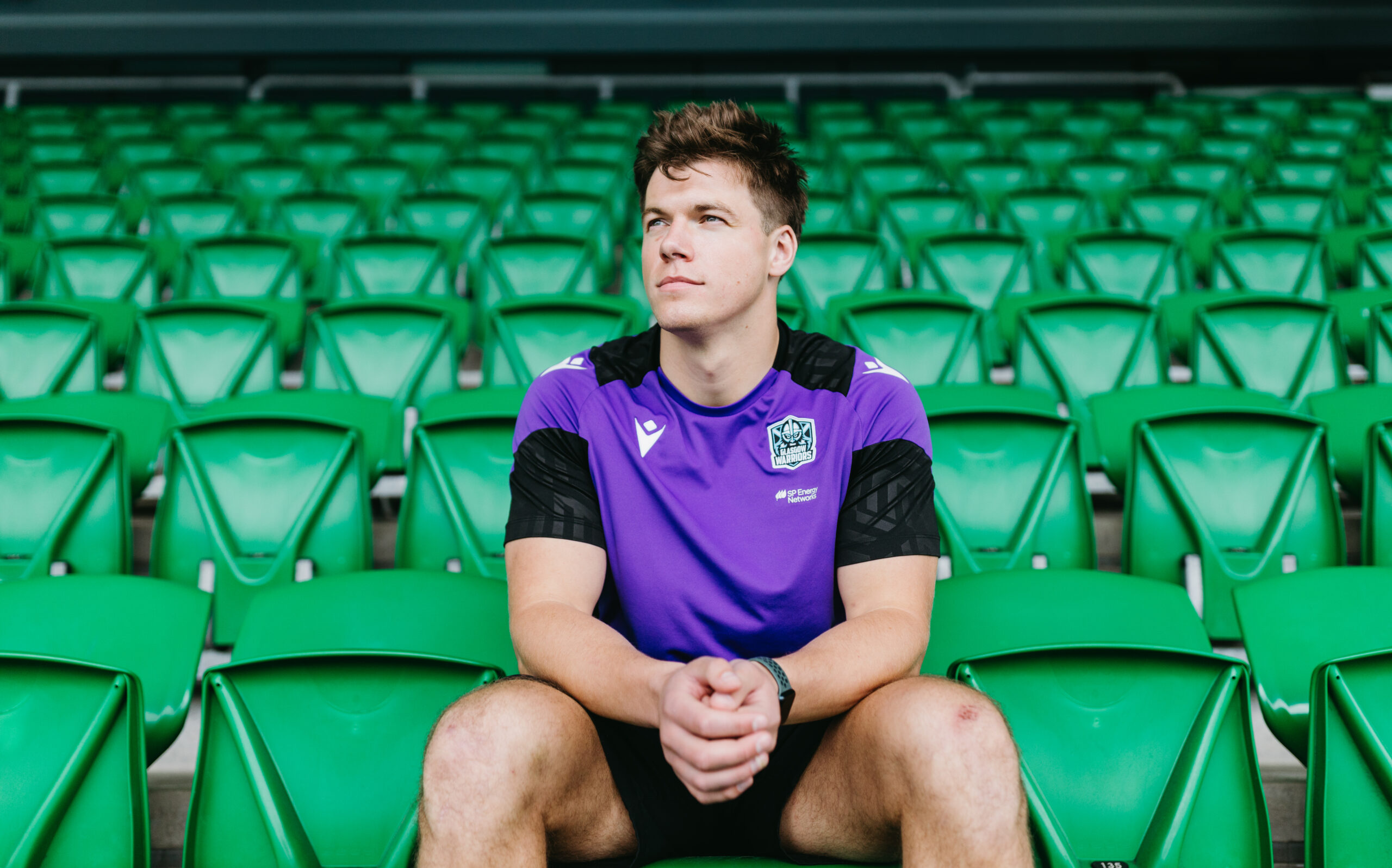Warrior Roots | Huw Jones
20 Nov 2024Huw Jones is a try-scoring star for Scotland and Glasgow Warriors. Early memories of playing rugby in the family garden with his competitive brother spurred Huw into the outside centre he is today.
Huw Jones is a try-scoring star for Scotland and Glasgow Warriors. Early memories of playing rugby in the family garden with his competitive brother spurred Huw into the outside centre he is today.
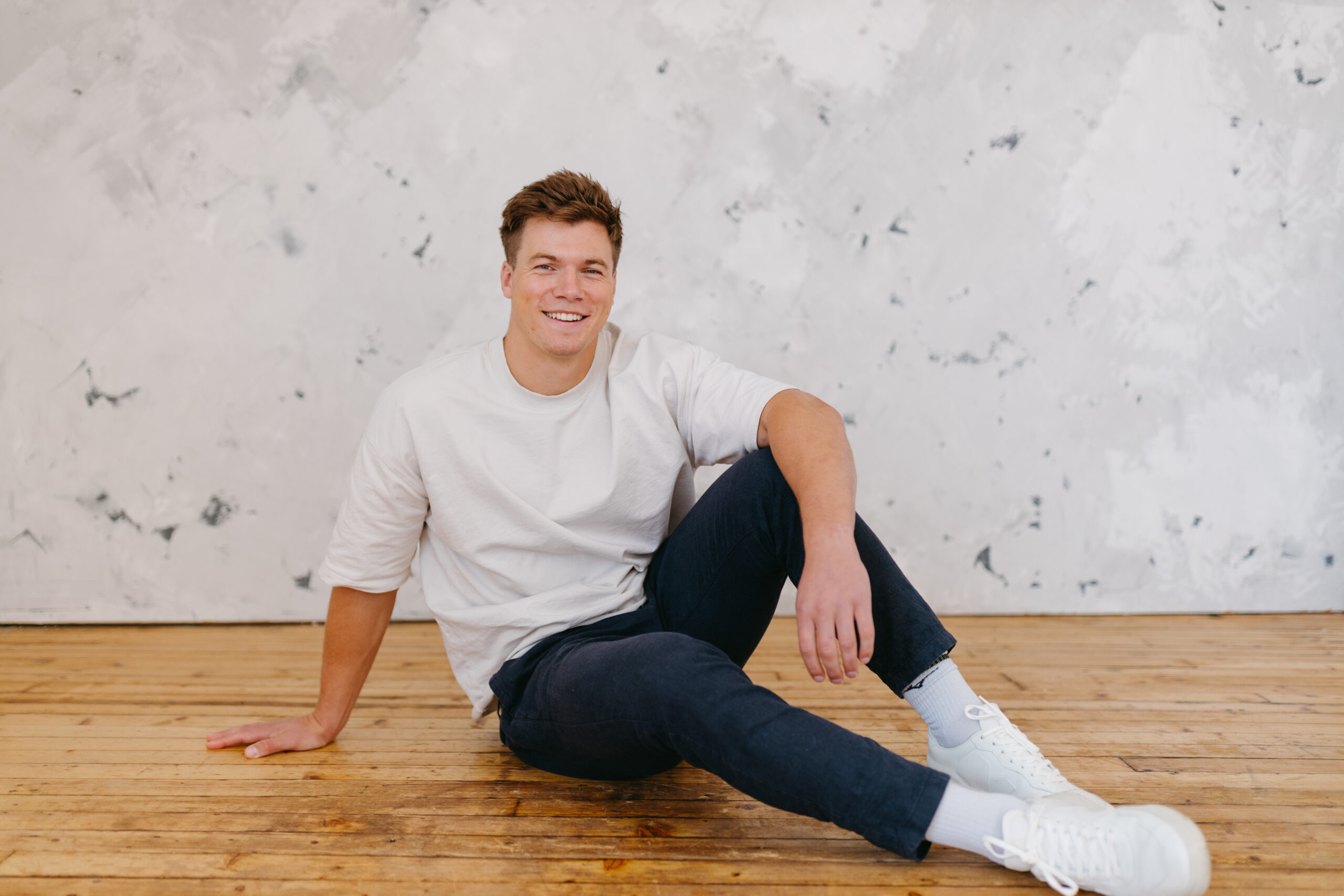
Huw tried many a sport growing up, but it was rugby that caught his attention, perhaps from the healthy rivalry of the garden games between him and his brother.
These are Huw Jones’s Warrior Roots.
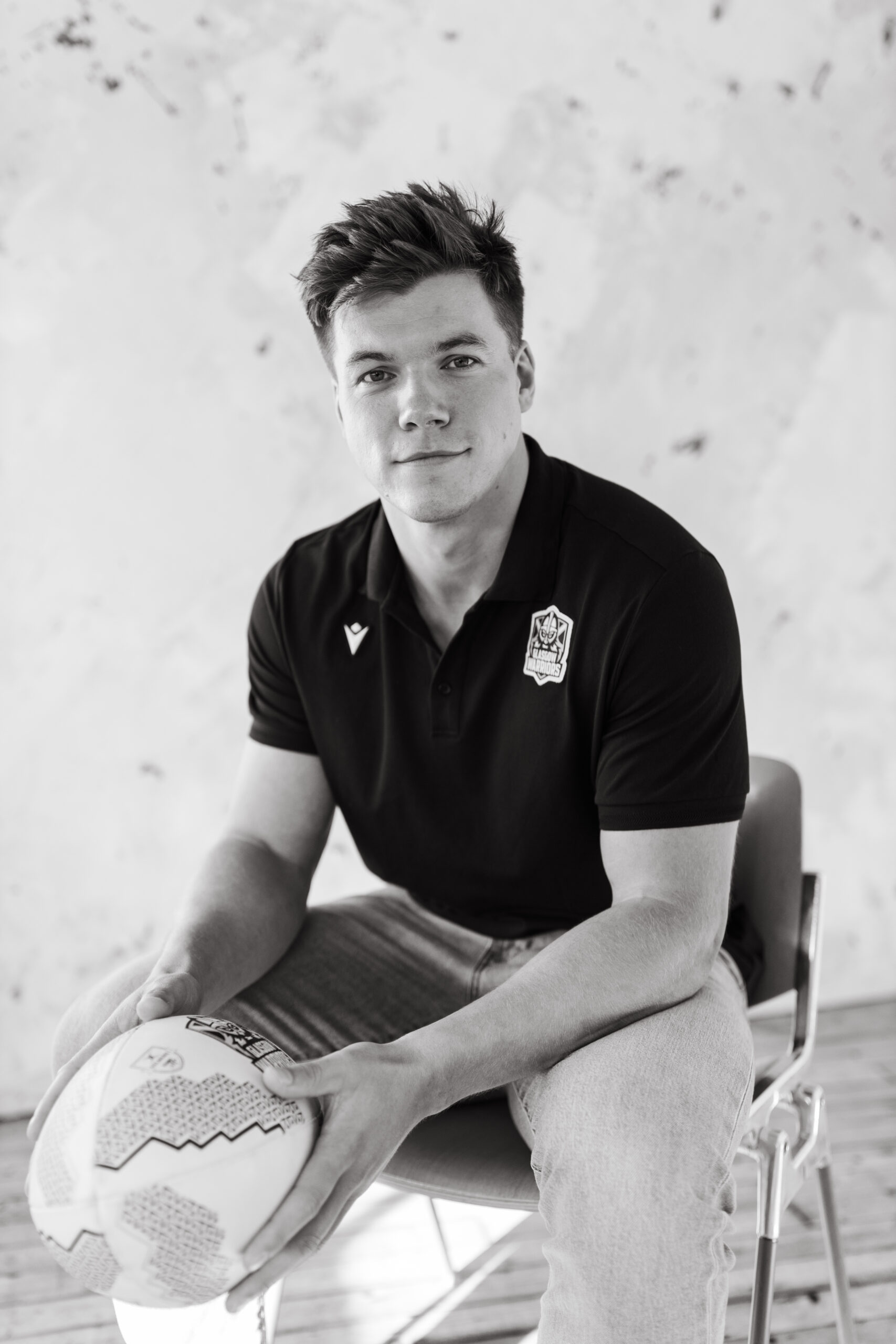
Huw Jones has travelled from England, to South Africa, to Scotland with his rugby. He helped Glasgow secure the United Rugby Championship title in 2023/24.
Whilst the centre holds over 50 caps for Scotland and is in his sixth season at Glasgow Warriors, his first rugby moment was playing in the garden.
‘I’ve got two older brothers, and my dad as well are all into rugby. I do have early memories of playing around in the garden a lot of the time. It was just one-on-one with my brother. We were the middle brothers in the family, so we had a pretty good rivalry.
‘We’ve still got a very good friendship to this day, and he still plays sport. We grew up basically battling it out in the garden pretty much every day.’
Huw grew up in a family of six, with two brothers and a younger sister. Competition was healthy and fierce, especially when it came to rugby between himself and fellow brother Johnny.
‘I’ve got two older brothers and a younger sister. Evan is the oldest. He doesn’t play any sport these days. Johnny is the one just above me and he plays at Edinburgh Accies. My younger sister is Rhiannon, and she played hockey growing up.
‘I’m the only one who’s gone to be a professional sportsman. But I do put some of my success down to that rivalry in the garden. For my whole childhood, I was sort of punching above my weight. Competing against two older brothers who were bigger than me probably put me in good stead for a career in rugby.’

Whilst Huw eventually came to focus on rugby as his main sport, growing up, he enjoyed cricket, football, and swimming.
‘I grew up playing all sports. We were really lucky. My dad’s a teacher. He was a deputy head at a school down in Canterbury, and we lived just off the school campus. We had access to all the facilities. Throughout the holidays, we’d go and play tennis on the front tennis courts. There was a pool. There, we’d go swimming.
‘Throughout the year, we’d be playing football. We’d be in the cricket nets. We’d be doing one-on-one rugby games where you’d basically try to score in the corner. You’d run down the five-metre channel, and the guy would be coming across, and you weren’t allowed to step on the inside. It was pretty fun he did that.’
Huw credited his dad for taking him and his brothers down to Canterbury Rugby Club after one of his school friends invited him to come and play.
‘My first proper club where I joined the Under 7s was Canterbury. I joined there because of one of my schoolmates. I joined the school in Canterbury after my family moved there from Lincoln, and there were a couple of boys that played at Canterbury Rugby Club. We did sport on a Saturday at school, but there’d be club rugby on a Sunday. I went along. My dad took me along, and my brother as well. I got involved and just loved it. Then I played there from U7s all the way until U13s.’
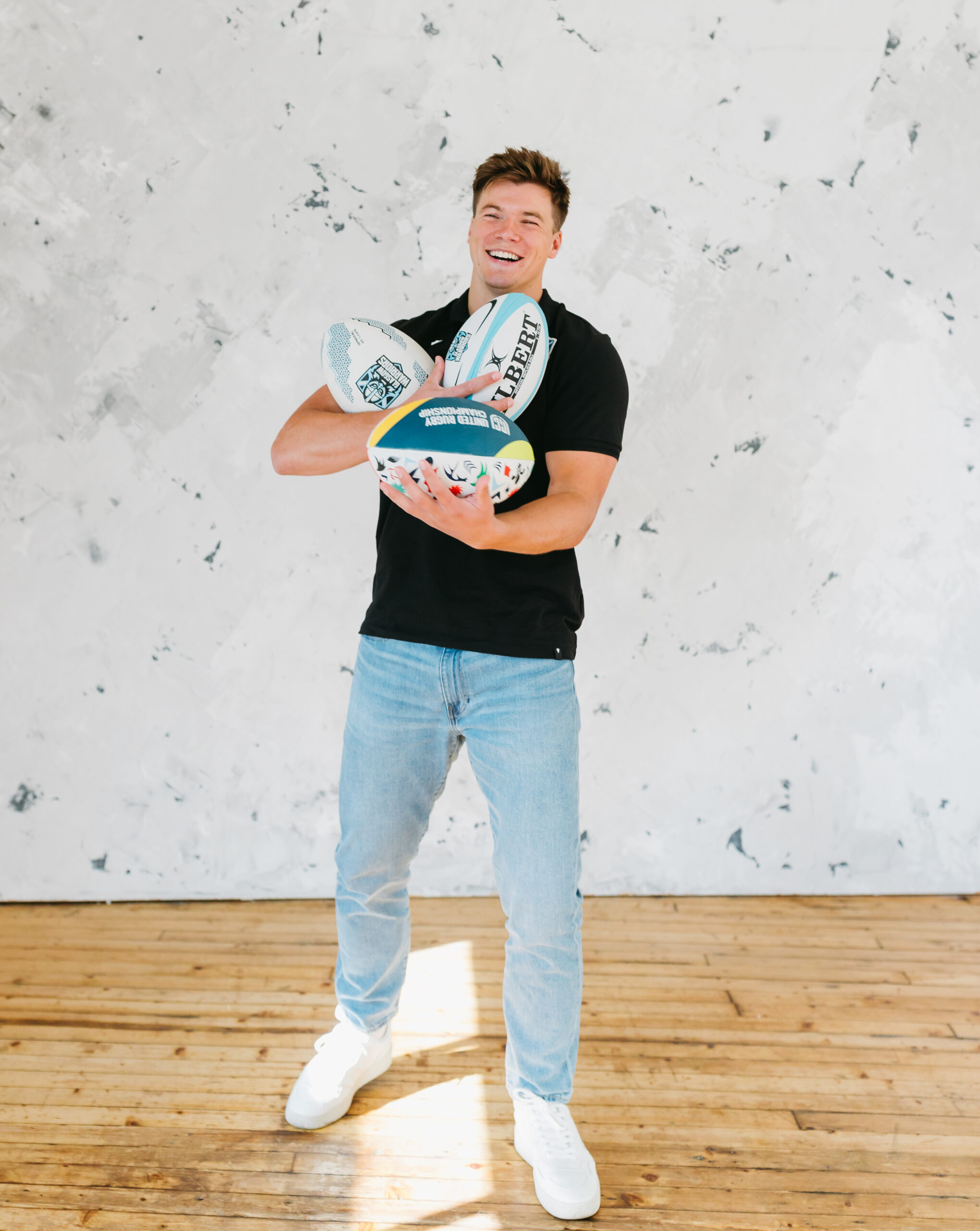
‘Then I went across to boarding school. I played the odd game where I could in holidays. The best club rugby moment I had was when I was 16 or 17. Johnny, my brother, was 18 or 19. It’s the only time we’ve played together. We played together for the club men’s second 15. We got a win. He actually set me up for two tries. I felt bad because I got man of the match. But he played really well. I think they just gave it to me because I was the youngest guy on the pitch. That was a great day. If you asked my dad, he’d probably say that was his proudest day seeing his two sons playing together.’
During his adolescence, Huw focused on making rugby his central focus.
‘Rugby came to the forefront, because it was probably what I was best at.
‘I loved football when I was younger. I loved cricket as well. I was pretty good at all of them. I played a decent level for all those sports. But I think once I went to boarding school, a place called Millfield in Somerset, which is quite a big sporting school, I quickly realised that I wasn’t as good at cricket as I thought I was. There were a lot of boys who were better than me. It was the same with football. But I was good at rugby, so I stuck with that.
‘I still played other sports throughout my time at school, but rugby was the focus by the time I got to 18. ‘
With hindsight, it’s easy to say that Huw Jones was destined for glory in the game. Yet, in the early 2010s, Huw believed that he didn’t have a strong chance of ever playing professional rugby.
‘I played at school and stuff, but I didn’t really have prospects of being a pro. I didn’t get an academy deal straight out of school.
‘I had a place at Swansea University, which was where my older brother was. But I was trying to put off the inevitable of doing a degree, maybe getting a job. I would have ended up doing history at Swansea if I hadn’t gone to South Africa.’

Like many 18-year-olds contemplating their next steps as they walk into adulthood, Huw took a gap year in South Africa to allow for some thinking space. His time there kickstarted his professional career in rugby.
‘I did eventually achieve my dream, but probably not in the way that I expected.
‘I ended up applying to do a gap year out in South Africa. They call it gap students. I got accepted there, got a job essentially just being an assistant boarding house master and coaching sport. I went out to Cape Town and did that for a year.
‘What ended up happening was that I played rugby for a couple of clubs out there. Then I played for the university and got a rugby contract off the back of it.’
Huw’s gap year in South Africa turned into a five-year stint in the southern hemisphere.
‘I ended up living in South Africa for five years in total. I went out in 2012 just after I left school, and the gap year job was a year, so from July 2012 to July 2013.
‘Their seasons work differently in rugby: they start in February and end in August. I joined this club called False Bay out in Cape Town. We ended up winning the league. It was a Super B League, so it was the tier below, but we had a very good team. We dominated that league; our team was class.
‘The head coach was a guy called Kevin Musikanth and he got the head coach role at the University of Cape Town. Because I was one of the youngest guys in the squad, he was like, “you should come study, do some work.”’
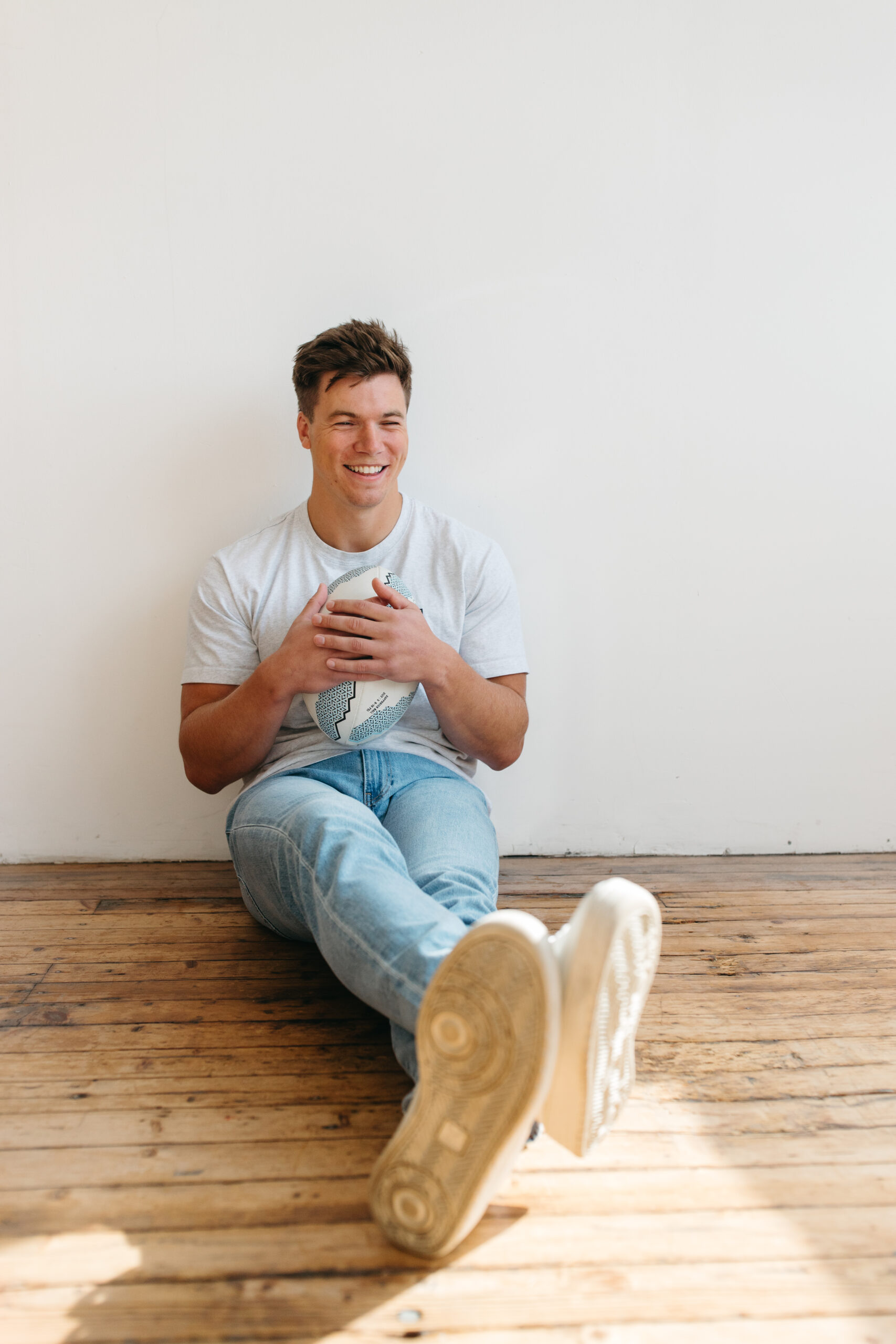
‘So, I joined the University. In my first year, we won the Varsity Cup, which is the big university competition out there. In South Africa, they want guys to get degrees. Rugby is such a huge sport, but they don’t want guys to just focus on it because not everyone can make a decent living out of it as the country only has four or five professional franchises. Often a lot of players would go down the university route and then try and get a contract off the back of that.
‘University games in South Africa get high attendance numbers and everyone watches the games on TV. The universities are essentially rugby academies.
‘In 2013, we won the league with False Bay. In 2014, I won the league with UCT. I got signed by Western Province at the end of 2014. They are a Vodacom Cup team. Then I got signed and joined my first Stormers preseason in 2015. That was my first pro year.’
Huw’s gradual progression from club, to university, to semi-professional then full-time rugby resulted in plenty of silverware along the way.
After five years in South Africa, Huw made the move to Glasgow.
‘Glasgow was my first club once I came back to the UK. I was actually spotted while I was at the University by Gavin Vaughan, who was here at the time. He invited me up to Glasgow in 2014. I came up and I could have signed here, but it was December and freezing cold. I’d just come from a Cape Town summer.
‘I remember watching a game at Scotstoun. I’d sat in hospitality with Al Kellock, and he talked me through the club and its culture. He was still playing, but he wasn’t playing that game. I went away thinking, “it’s a cool club, but it’s such a hard decision.”
‘I went back to Cape Town. I stayed there for a few more years, and then I made my Scotland debut in 2016 while I was still there. I played for Scotland on the 2016 summer tour. After that, the conversation with the Scotland set-up was, “you should probably come back up here” and “we need you to play in Scotland if we’re going to keep picking you”.
‘I ended up signing that autumn in 2016 and then I joined Glasgow the next autumn in 2017.
‘In terms of a career decision, it was the right choice. In terms of lifestyle, l would’ve been better off staying in Cape Town for the weather, but I’m obviously an ambitious person; I wanted to further my career.
‘I wanted to play international rugby, and being up in Scotland was the best thing for me. I’ve had some really good coaching here.
‘I gained my 50th cap in summer 2024, and that may not have happened had I not joined Glasgow. I’m definitely glad that I came up here.’
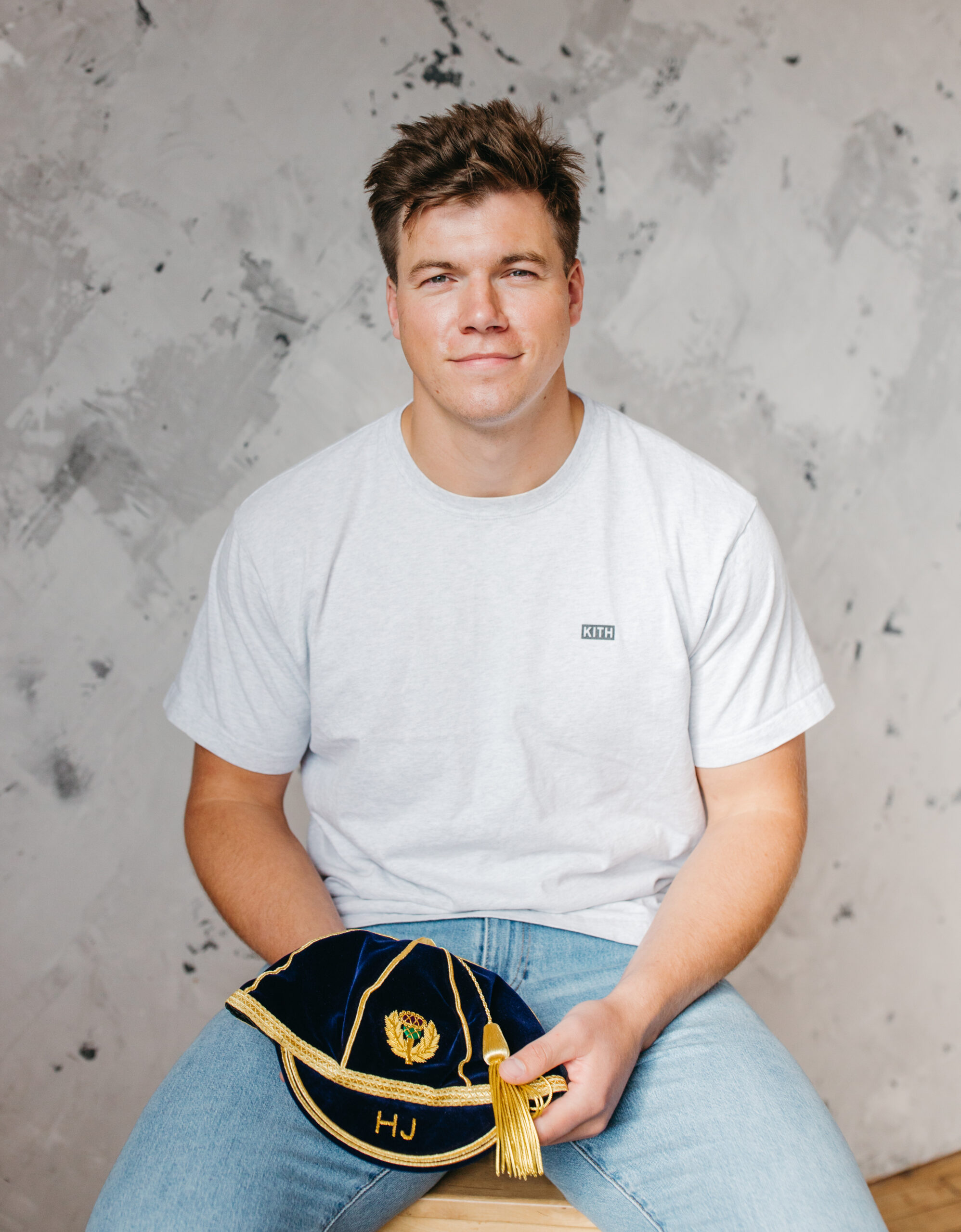
In his first stint at the club, Huw spent three seasons as a Warrior. He had a quick spell at Harlequins from 2021-2022 before returning north of the border to Glasgow. Now in his sixth season, Huw Jones has over 70 caps as a Warrior.
Huw Jones still has much more to give in what has already been a highly decorated career. Along the way, he’s had several influential coaches that have inspired him.
‘I think I had the natural talent for rugby. I’d had really good coaching at school and Millfield, because that is a brilliant sports school. We had two fantastic coaches there as well. I think it was the fact you go from playing under 18s to men’s rugby, it’s a big step up. I’m sure guys will be finding that nowadays. We’ve got a lot of like young boys in here at the moment in preseason, and I’d imagine they’d be going off and playing club rugby throughout this season.
‘It is a bit of a step up, sometimes. Not necessarily in terms of skill quality, but just the size of guys, the aggression, the physicality. That’s a skill, and it’s something you have to learn.
‘I’m pretty old. I’ve had a lot of coaches, and I’ve played for a few different clubs.
‘The coach for most of my time at Canterbury was a guy called Michael Pugh. His son played in our team, but he was so passionate about it. He put all his time into coaching us, and we were a successful team. We won a lot of tournaments down in Canterbury, in the Kent area. It was a lot of fun to be playing in that team.
‘He coached us from nines up until under 13s. He continued until his son would have stopped playing around under 18s. Michael Pugh, he was brilliant. He was so passionate about rugby and our team, and because we were successful, you never wanted to leave.
‘Then at False Bay, Kevin Musikanth, was head coach and he really took me under his wing. I was young and got my first real taste of men’s rugby, which was eye opening at times. He was brilliant. Then he brought me across to UCT, and he was the head coach there. So, he was huge for that period of my rugby development. It was the bridge from school rugby to professional rugby.’
Throughout his career, Huw has learnt valuable lessons both about the game and himself.
‘I loved rugby at the University because we were all really good mates. We were a very tight knit bunch. I think that was one of the main reasons we went on to win the competition because we just loved playing rugby so much. You didn’t have any of the stresses of how much money you’re earning because it wasn’t professional. You were just there to play rugby.
‘It was a really high standard. It was the best of both worlds, where you’re playing really good quality rugby, but you’re also just playing for the enjoyment of it. That’s sort of stuck with me.’
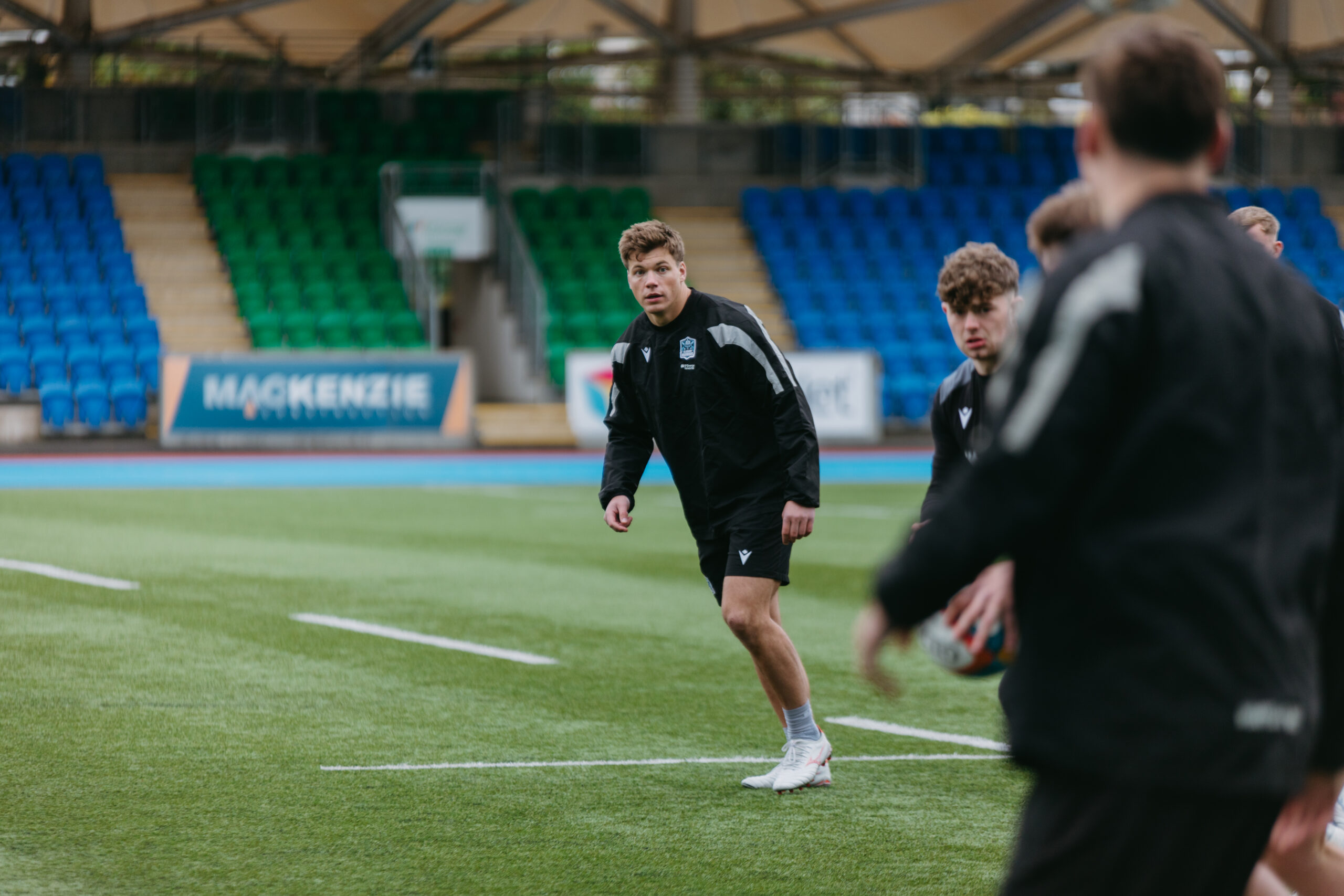
‘Anytime rugby seems like a job, or a bit of a slog, or I’m stressed about stuff, I always just try and remember, how enjoyable it is and how lucky we are to just be paid to play.
‘Rugby was my biggest hobby growing up, and now I get to do it for a living. So that’s probably the main thing that I’ve learnt throughout the course of my rugby career.’
Huw consistently displays his positive and determined attitude both in international and club colours.
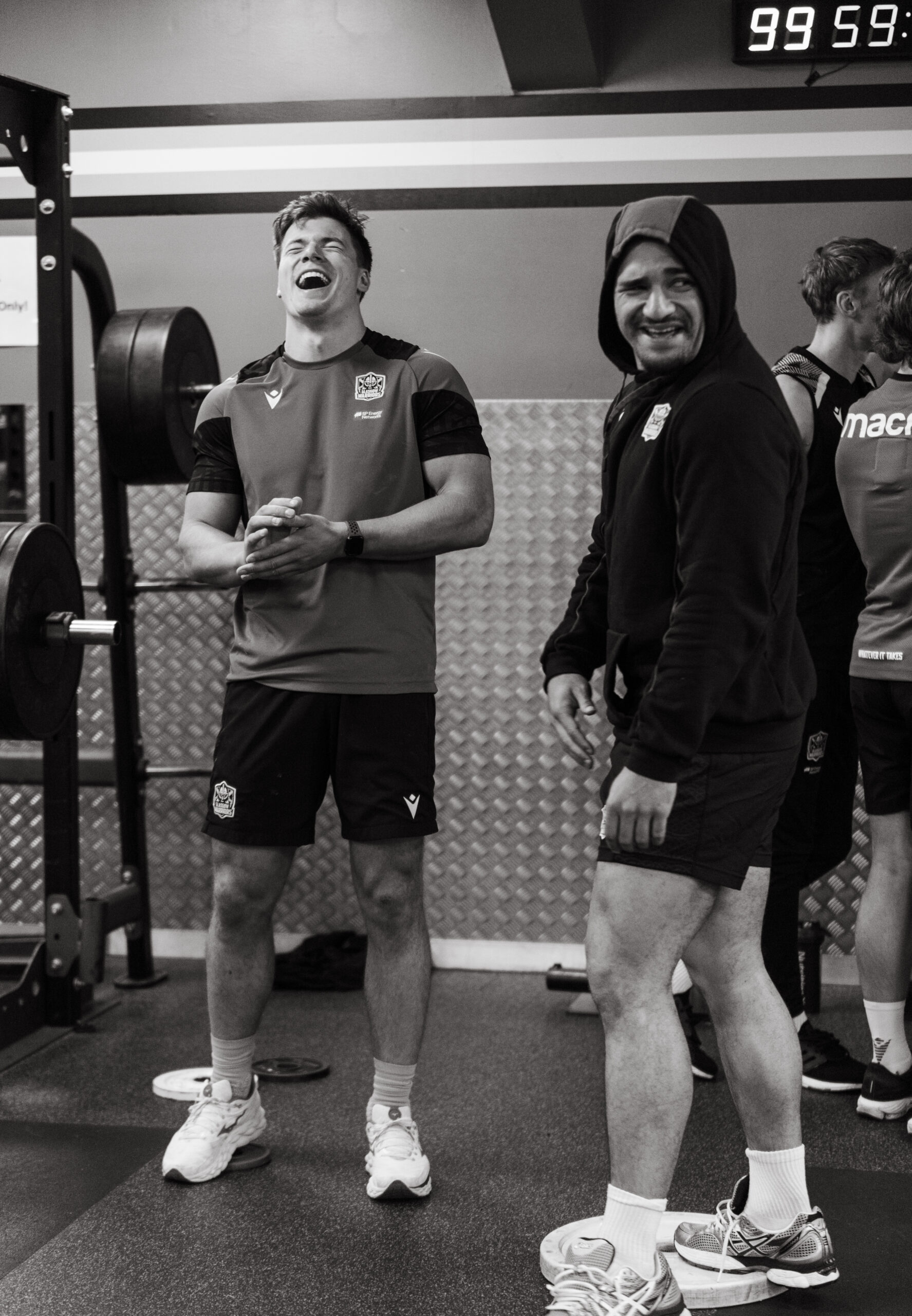
Huw’s success has certainly been converted into silverware with many of the teams he was part of. He found there to be similarities between his time at UCT when the squad won the Varsity Cup and becoming URC Champions with Glasgow a decade later.
‘I can definitely draw similarities. When you win a competition, it does form a special bond with those teammates. The big difference between UCT and Glasgow is that it was a much shorter season in South Africa. We only played eight games in ten weeks and then a semi-final, and final. It was very intense. You’re in and you’re out.’
Glasgow Warriors had been building to URC success even if Huw experienced roadblocks that disrupted his 2023/24 season.
‘I had two injuries last season, and still came in and out for games and then came back again for the end of the season. I would consider the last three games, that quarter-final, semi-final, final, that definitely felt similar to UCT. It had the same buzz around the group, the same belief.
‘Each time I’ve been involved in winning a competition, we’ve just had this amazing belief. We had self-belief—self-confidence—that didn’t go into a form of arrogance. We knew exactly what the challenges were ahead of us, and we embraced it.
‘Conversely, I’ve been in teams where we’ve got into playoffs and lost.
‘There’s been a clear difference with Glasgow in the last two seasons. We made the Challenge Cup final in 2023, and I felt that the mood around the team was sort of hard. I thought, ‘I’d really love to win like I hope we can win’. Whereas last season, when we won the URC, those last three weeks, we were taking it all our stride, and were like, “Yeah, we’re gonna win. We just need to get the job done”.
‘Everything was another challenge, but we were all so up for it. It’s like we were all standing tall, like we had big chests and were feeling strong. Everyone felt so full of belief and confidence, and we went and got the job done. And it seemed so simple looking back at it, but at the time it was, it was tough.’
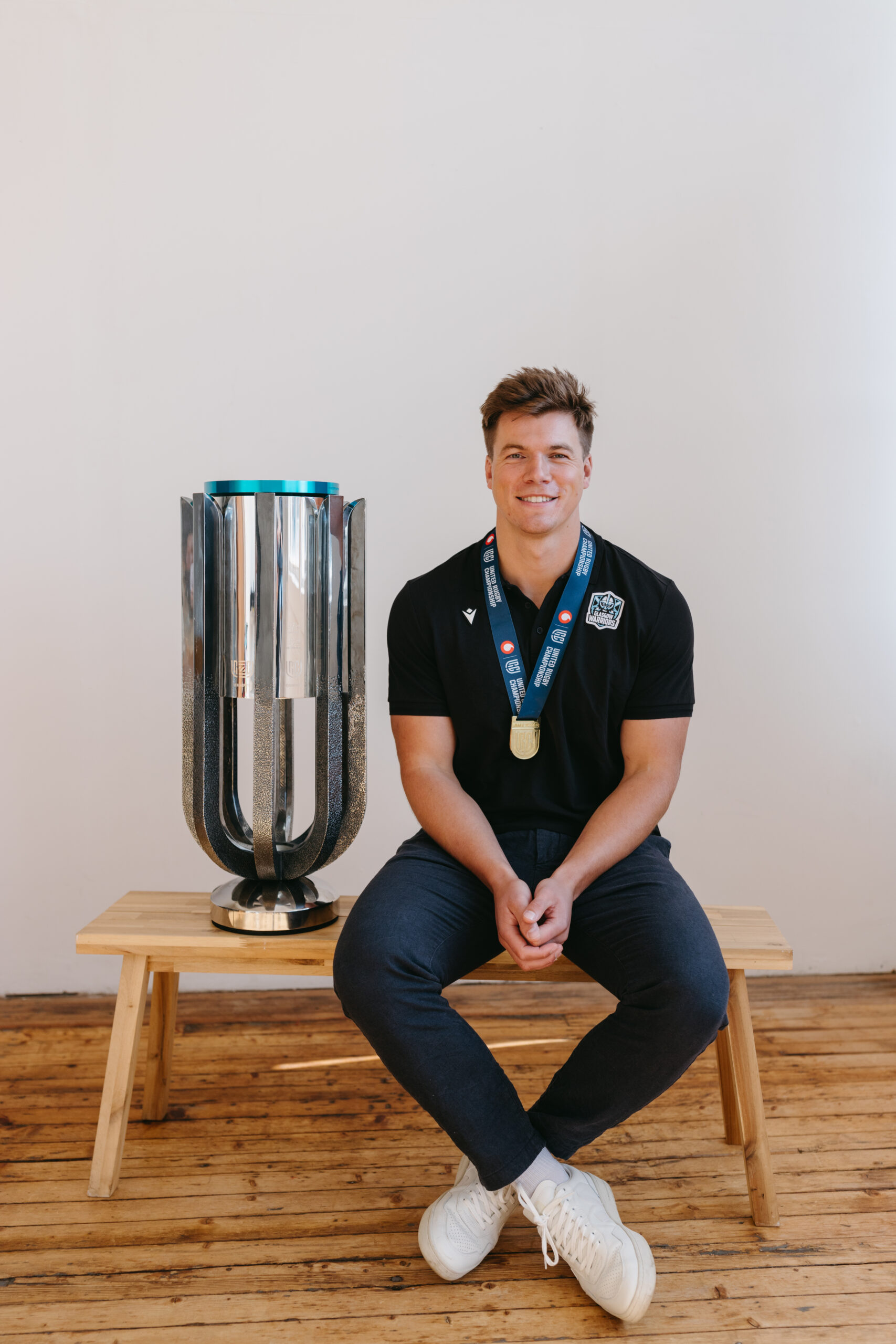
‘It means the world to me to have won the URC. Because when you win a competition, it’s something that you can look back on, you can hang your hat on that, and you can say, “I’ve had success”. It’s like a marker that you can set down.
‘Before we won the league last season, I always had in the back of my mind that I’ve been at Glasgow for seven years and I’ve not won anything. I did feel successful before the win because I’ve scored loads of tries and enjoyed my time at the club.
‘Everyone wants to be successful. I think it’s a really nice thing to be able to look back on and know we won something. We were the best team that year.’
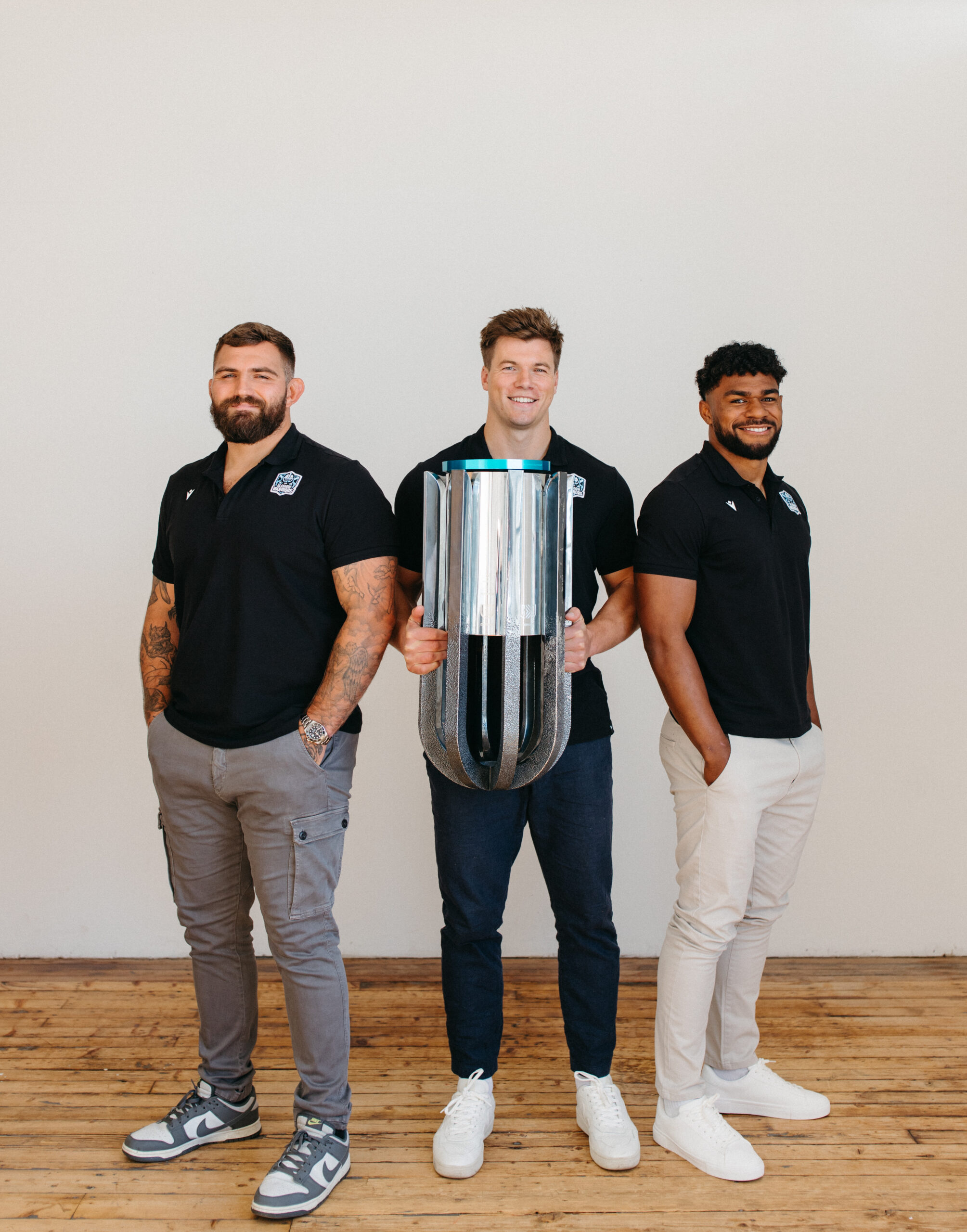
To win trophies, teams must play their best. Both as a unit and in a way that allows individual players to flourish. At Glasgow Warriors, Huw has shown his confidence on the pitch that has helped his team win silverware as well as set him up for scoring scintillating tries.
Notable passages of play involving Huw include his try against the Vodacom Bulls in the Grand Final of the URC in 2023/24. The try was assisted by a long pass from Tom Jordan to Kyle Steyn who passed it back inside for Huw to cement the score.
Huw has learnt the importance of playing confidently if him and his team are to succeed.
‘I think that I play my best rugby when I’m full of confidence and when I’m not overthinking things. Franco always says, “make a decision. Doesn’t matter what decision it is, just make a decision”.
‘You never want to be caught hesitating on the field because you’re not doing anything at 100%. I trust my instincts. They have sort of put me in good positions throughout my rugby career, from when I was a youngster, and to running around the field to now.
‘Some of my best highlights and moments have come from not even thinking about what I’m doing. It’s almost like a subconscious thing. On the field, everything happens so quickly. When you’re watching it back, it’s easy to see when someone steps and puts their foot down and makes a line break and stuff, but at the time, it’s a split second. You’re not even thinking about what you’re doing. It’s what comes naturally, because you’ve trained for so long, you’ve been in that position so many times, it’s almost just what you do.
‘I’d say that’s when I’m at my best. I don’t want to say that I’m not thinking because I’m thinking, but it’s almost like I’m not overthinking things. I’m just playing naturally, playing what’s in front of me, what I see.’
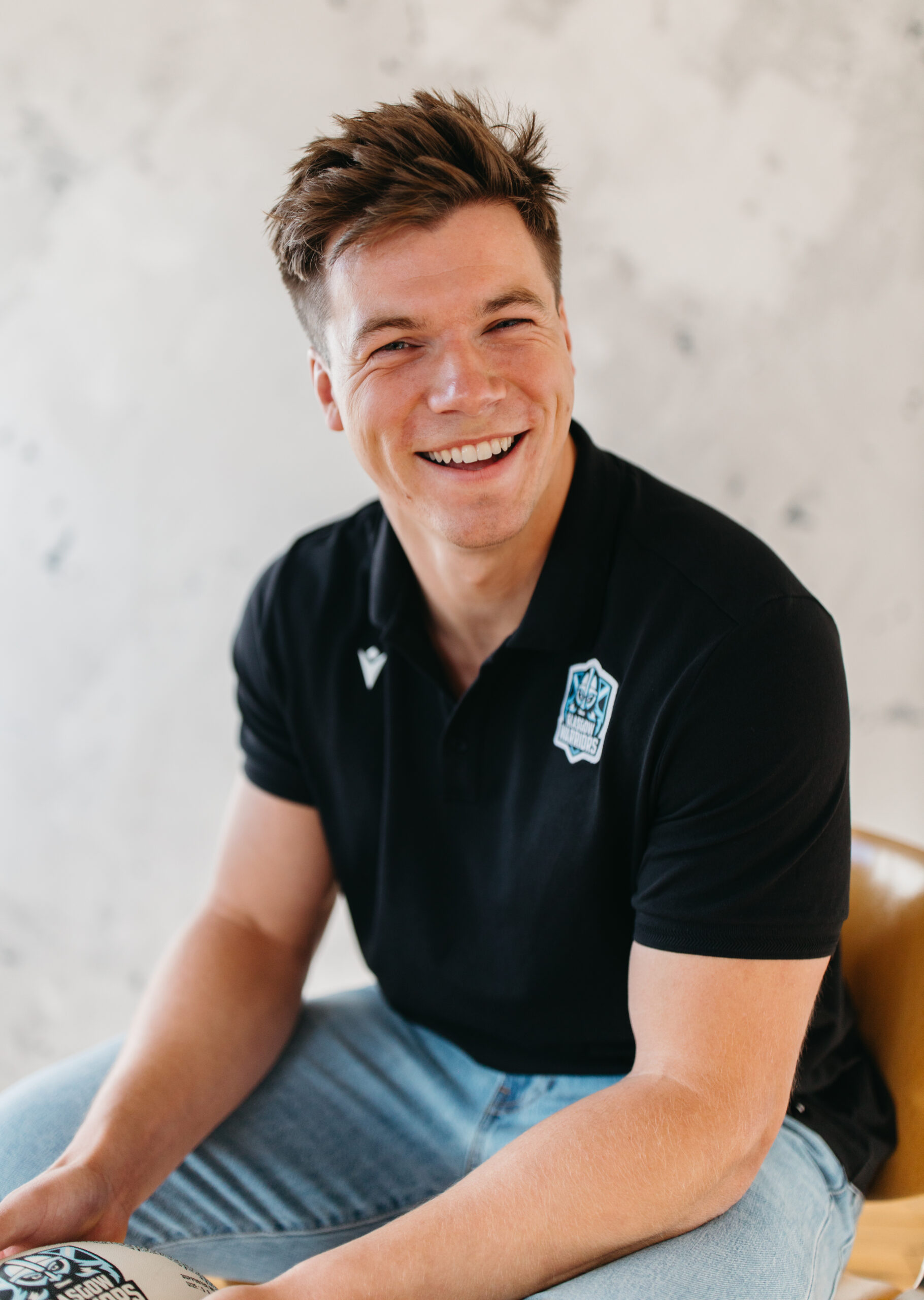
Huw continues to take this positive, confident attitude into his ambitions to break records for Scottish rugby.
‘I’m on 18 tries at the moment for Scotland.’
‘My two main goals with Scotland were to reach 50 caps—which I have—and beat Gregor Townsend’s try-scoring record. I’ve done that as well. After that, it’s about chasing down Duhan and Darcy’s records who are currently ahead of me.
‘The next one that I know I could probably chase down is Tommy Seymour. He’s on 20 tries. I’d love to get ahead of him.
‘Tries are a tricky one. There’s an old saying about buses: you wait ages for one then two or three come along at once. I’ll go through a period of not scoring and then I’ll get a few in a row. You think, “I’m back, I’m scoring now”.
‘But scoring tries is difficult.
‘Someone like George Horne has perfected the art of getting on the end of tries, getting that last pass. He’s done it for so many years. Johnny Matthews has cracked being on the back of the driving maul. I need to find something like that.’
Whilst Huw may be chasing try-scoring records, the outside centre is also famous for his fantastic line breaks.
‘Making a line break is the biggest thrill. When you go untouched through a gap, going at full pace, leaving everyone behind… it’s a top tier feeling.
‘Scoring tries is getting the high but it’s also the relief of getting over the line. They’re both amazing feelings but in slightly different ways.’
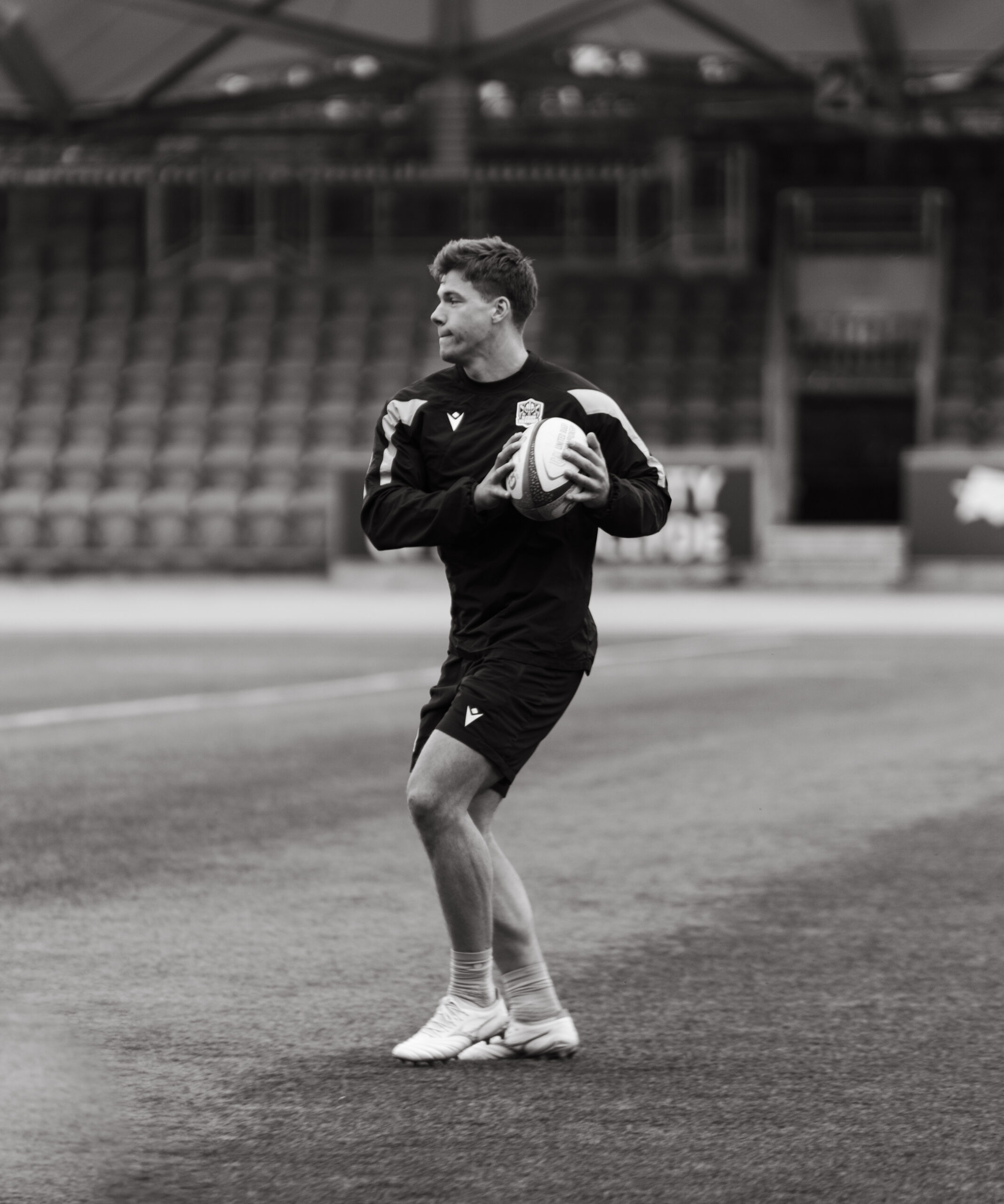
Whilst known for his line breaks and try-scoring capabilities, off the pitch, family life is massively important to Huw Jones.
Huw is husband to wife Annabel. The couple recently welcomed their first child, Romy. Huw is also a dad to a Maltese poodle called Louie.
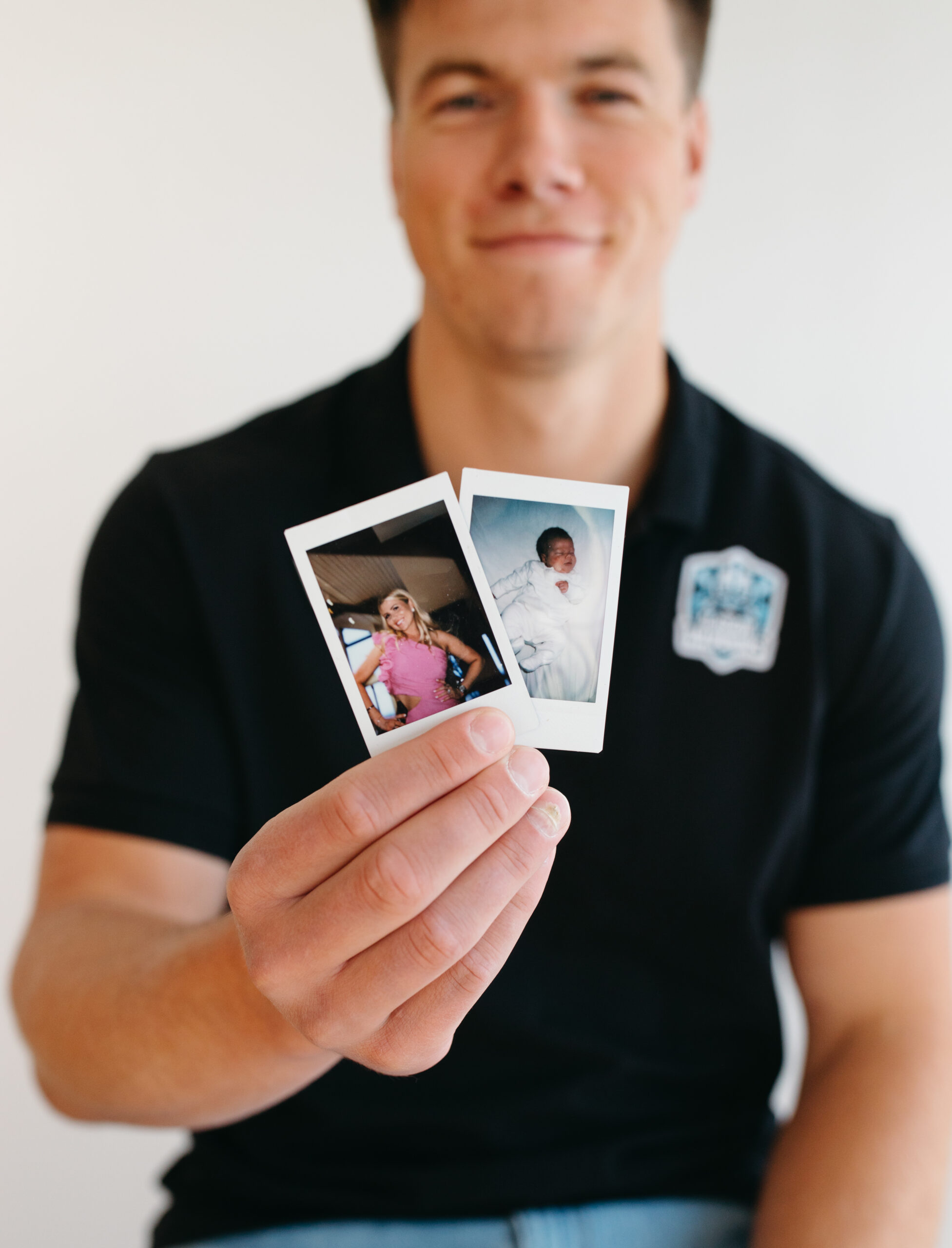
Outside of rugby, Huw continues to pursue his love of history.
‘I had a place at Swansea to study history. I’d never actually went and followed through with that. I am interested in history. I read a lot of books, mostly surrounding history. I’ve read series on the Romans, the Greeks, some about Mongolians. They’ve all been interesting. I like war stories as well, things like that.
‘I’m in the middle of a series now: The Flashman Papers. It’s historical fiction and satire. They’re pretty funny. Hamish Watson got me onto them, so they’ve been pretty good.’
Huw has a long-standing relationship with Oli Kebble who had also been at Glasgow Warriors until the end of the 2023/24 season. Kebble now plays for Oyonnax in France. The pair originally met in South Africa where they quickly established a mutual love of drinking wine.
‘We like our wine. There’s less drinking now that he’s gone away to France. He drinks a lot more than I do. I originally met Oli out in Cape Town. We lived together for a few years back then and had some great years in that flat.
‘Me and Oli ended up signing for Glasgow at the same time. He came out a couple of months before me because I was still contracted for the Currie Cup season which we ended up winning so I’m glad I stayed.
‘Oli saved a space for me in the flat in Glasgow. I lived with him for another couple of years before growing up and moving out. It’s a friendship that goes back a long way.
‘But I’ll never be able to drink as much as he can.’
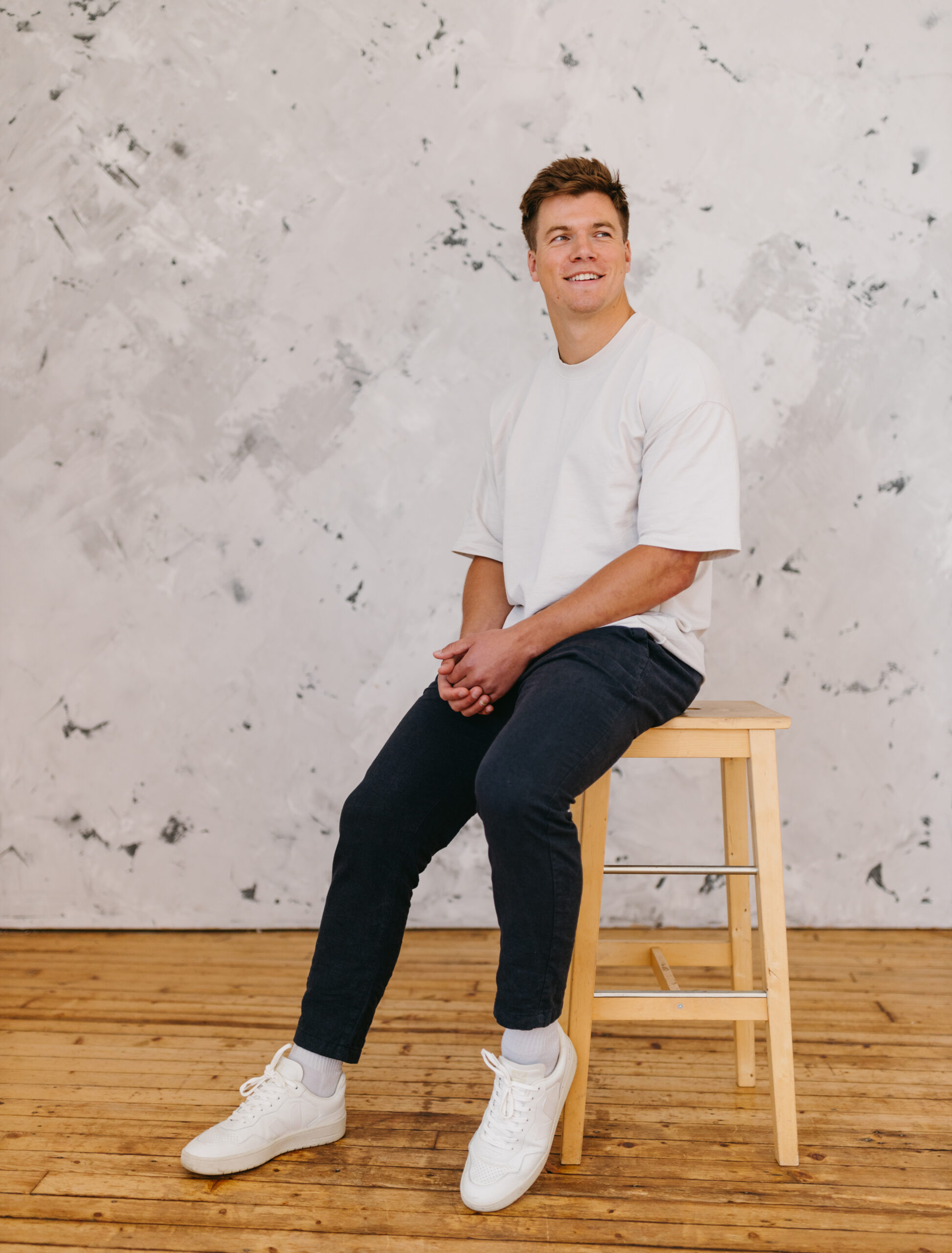
Huw Jones certainly has more to give to the world of rugby. Looking back at his career so far, Huw credits his brother Johnny for their games of one-on-one rugby in the garden when they were children.
‘I’ve had a successful career so far when I think about it. This is probably my 10th year now as a pro. I’ve had decent success wherever I’ve been and finally now with Glasgow.
‘Looking back, I think I’ve always owed a lot to my brother. Just for when we were younger, when we were playing out in the garden, I’d get tired and say, “I want to go inside”. Johnny literally forced me to stay outside, to keep playing with him.
‘He would say, “No, I want to do three more chip kicks”. Or “I want to do 10 more passes off both hands”. Or “next try wins, next try wins, next try wins”.
‘We’re slightly different people in the way that he’s probably always had the work ethic, whereas I can sometimes be happy with the job done. But I think he helped to instill that in me and that’s helped me in my rugby career to have like that work ethic.
‘Johnny was always encouraging me to keep going because he wanted to. I owe a lot to my brother.’
